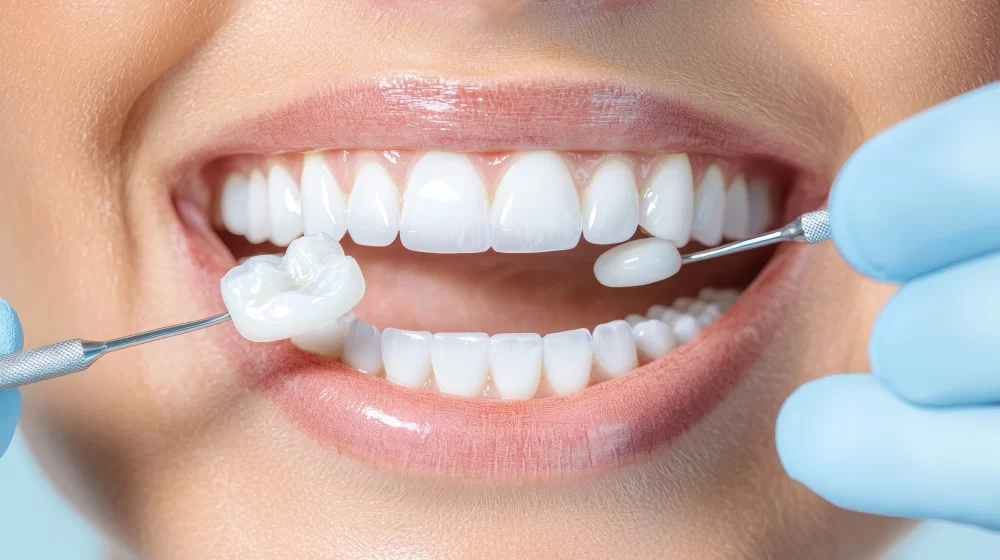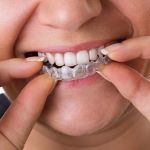
- Understanding Dental Veneers and Their Care
- Daily Cleaning and Hygiene Practices for Veneers
- Preventing Damage and Avoiding Risky Habits
- Professional Checkups and Long-Term Maintenance
- Real-Life Case Study of Successful Veneer Care
- Recommendations for Veneer Products and Services
1. Understanding Dental Veneers and Their Care
Dental veneers are thin shells of porcelain or composite resin placed over the front surface of teeth to improve their appearance. While veneers are designed to be durable and stain-resistant, they are not indestructible. Proper care and maintenance are crucial to ensure their longevity and preserve the natural look. Understanding how to care for dental veneers long term means more than just regular brushing; it involves specific habits and routines tailored to their unique nature.
Veneers do not decay like natural teeth, but the underlying tooth can still develop issues if oral hygiene is neglected. This makes comprehensive care essential, including protecting the veneers from cracks, chips, and discoloration. Appreciating these nuances helps patients commit to a proper maintenance plan.
1.1 The Materials and Durability of Veneers
Porcelain veneers are popular for their strength and resistance to stains, while composite veneers offer easier repair but are less durable. Knowing your veneer type influences how you approach cleaning and protection. For example, composite veneers might need more frequent polishing to maintain shine.
1.2 The Role of Oral Hygiene in Veneer Longevity
Healthy gums and teeth are the foundation for veneers to last. If plaque accumulates around veneers, it can cause gum inflammation and compromise the bond between veneer and tooth. Therefore, learning effective hygiene techniques is fundamental to long-term veneer care.
2. Daily Cleaning and Hygiene Practices for Veneers
Maintaining veneers begins with daily habits that promote oral cleanliness without damaging the delicate surfaces. Here are critical points to focus on:
2.1 Brushing Techniques and Tools
Use a soft-bristled toothbrush to gently clean veneers, avoiding abrasive pastes that could scratch the surface. A non-abrasive fluoride toothpaste is ideal. Brush at least twice daily, ensuring you reach the gumline to prevent plaque buildup.
2.2 Flossing Around Veneers
Flossing is essential to remove food debris and plaque between teeth and veneers. Use a gentle technique to avoid dislodging veneers or irritating gums. Specialized floss or interdental brushes can be helpful in tight spaces.
2.3 Rinsing and Mouthwash Use
Incorporate an alcohol-free, antibacterial mouthwash to reduce bacteria without drying out the mouth, which helps keep the veneer area healthy and fresh.
3. Preventing Damage and Avoiding Risky Habits
Even with excellent hygiene, veneers can be vulnerable to damage from lifestyle habits and accidental trauma. Prevention is a key component of long term maintenance and care:
3.1 Avoiding Hard Foods and Biting Habits
Resist biting hard objects such as ice, pens, or fingernails, which can chip or crack veneers. Be cautious with sticky candies or extremely hard foods that stress the veneer’s bond.
3.2 Using Protective Gear During Sports
If you participate in contact sports or activities with risk of facial injury, wearing a mouthguard protects veneers and your natural teeth from potential damage.
3.3 Managing Teeth Grinding (Bruxism)
Many patients don’t realize they grind their teeth during sleep, which can severely damage veneers. Discuss with your dentist about custom night guards if you suspect bruxism.
4. Professional Checkups and Long-Term Maintenance
Regular dental visits are indispensable for keeping veneers in top condition. Professional cleanings remove plaque and tartar in areas that daily care may miss.
4.1 Frequency of Professional Visits
Visiting your dentist every six months for evaluation and cleaning is generally recommended. These visits allow early detection of potential problems like veneer loosening or gum disease.
4.2 Professional Polishing and Repairs
Over time, veneers might require polishing to restore their shine or minor repairs for chips and cracks. Trusting experienced dental professionals ensures any maintenance is done safely and effectively.
4.3 Monitoring Underlying Teeth Health
Veneers cover the front tooth surfaces, but decay or sensitivity can still affect the natural teeth beneath. Dentists use x-rays and exams to ensure overall oral health is intact.
5. Real-Life Case Study of Successful Veneer Care
Consider the story of Emma, a 34-year-old professional who got porcelain veneers to correct discoloration and minor misalignment. She shared that her commitment to a tailored cleaning routine and regular dentist visits helped her veneers stay flawless for over seven years. Emma avoided biting hard foods and used a night guard to prevent damage from her mild bruxism. This disciplined approach saved her from costly replacements and kept her confident smile radiant.
Emma’s experience highlights that proper care goes beyond simple brushing — it requires a holistic understanding and consistent effort, reinforcing how crucial long term maintenance and care are for veneers.
6. Recommendations for Veneer Products and Services
For those seeking the best products to support veneer care, Dentistry Toothtruth offers a range of recommended dental hygiene tools and professional services tailored specifically to veneers. From soft-bristle brushes and non-abrasive toothpastes to expert consultations on night guards, their selection ensures patients have access to quality solutions that enhance veneer longevity.
Whether you are just starting your veneer journey or looking to improve your current maintenance routine, exploring the options available at Dentistry Toothtruth can help you find the most suitable products and trusted professional services.







 Family Orthodontics - Peachtree City4.0 (134 review)
Family Orthodontics - Peachtree City4.0 (134 review) Community Health Care Hilltop Family Dental Clinic3.0 (188 review)
Community Health Care Hilltop Family Dental Clinic3.0 (188 review) Wai Kahala Dentistry LLC5.0 (43 review)
Wai Kahala Dentistry LLC5.0 (43 review) Gentle Dental Service4.0 (113 review)
Gentle Dental Service4.0 (113 review) Little Big Smiles Pediatric Dentistry of Fort Myers5.0 (130 review)
Little Big Smiles Pediatric Dentistry of Fort Myers5.0 (130 review) Brinton Family Dentistry4.0 (469 review)
Brinton Family Dentistry4.0 (469 review) The Importance of Oral Health Education During Pregnancy for a Healthy Pregnancy
The Importance of Oral Health Education During Pregnancy for a Healthy Pregnancy Best Tips for Brushing Your Teeth Properly for Healthy Gums: Essential Techniques for Oral Health
Best Tips for Brushing Your Teeth Properly for Healthy Gums: Essential Techniques for Oral Health Why Skipping Dental Checkups Can Lead to Bigger Oral Health Problems
Why Skipping Dental Checkups Can Lead to Bigger Oral Health Problems Advantages of Porcelain Dental Restorations
Advantages of Porcelain Dental Restorations How Can Diabetes Cause Tooth and Gum Problems? Preventing and Managing Oral Health Issues
How Can Diabetes Cause Tooth and Gum Problems? Preventing and Managing Oral Health Issues Healthy Habits for Promoting Good Oral Health and Hygiene: Tips for a Healthy Smile
Healthy Habits for Promoting Good Oral Health and Hygiene: Tips for a Healthy Smile